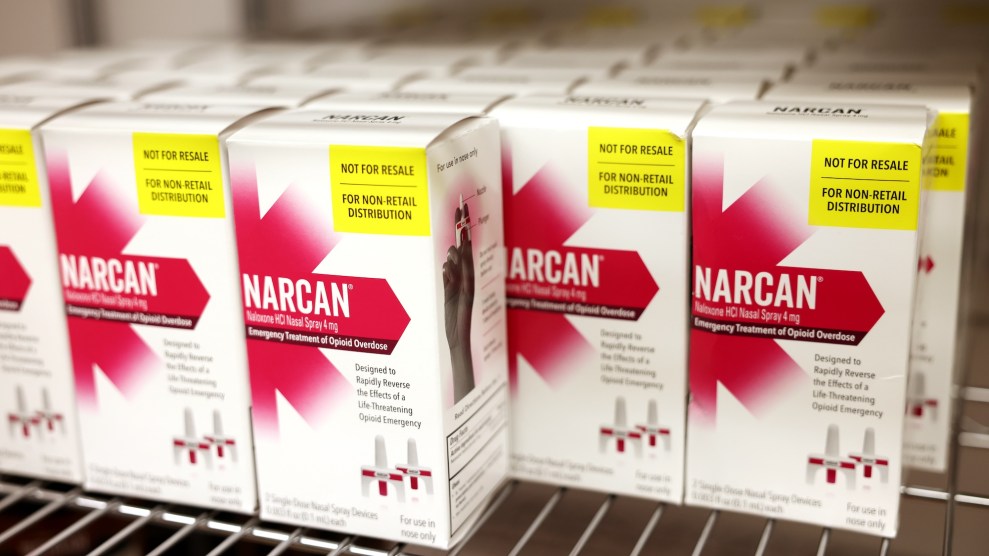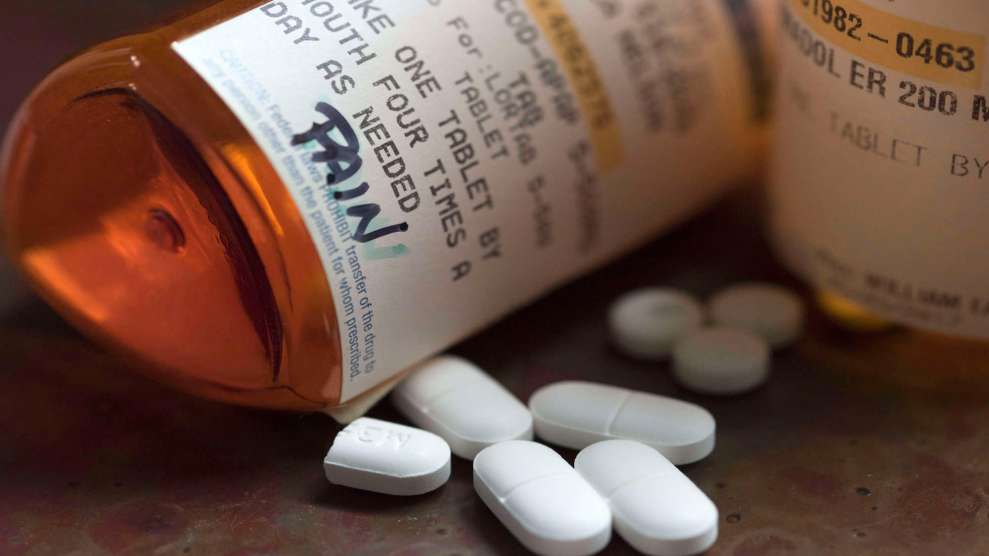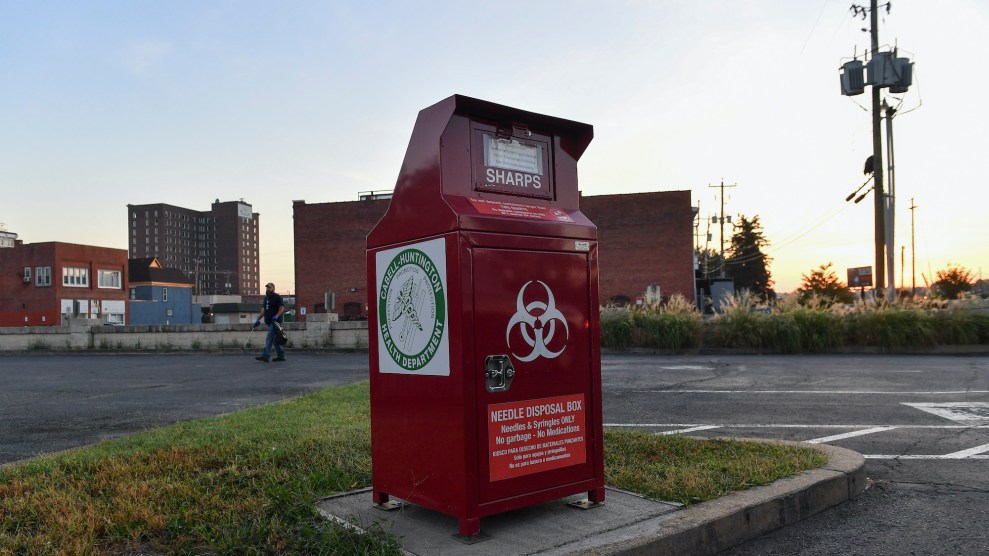
Nalaxone, better known by its brand name Narcan, can reverse opioid overdoes. Jessica Rinaldi/The Boston Globe/Getty
Drug overdose deaths have been on the rise for years, devastating communities nationwide. But as National Public Radio reported on Wednesday, that trend may be changing—so much so, said one expert who spoke to NPR, Dr. Nabarun Dasgupta of the University of North Carolina, that he anticipates as many as 20,000 fewer annual overdose deaths in coming years. Overall, in the twelve months beginning April 2023, the United States saw a decrease in drug overdose deaths of more than 12 percent—marking the first year since 2020 that overdose deaths have fallen.
The exact causes of the decrease are not yet completely clear to experts. Dr. Nora Volkow of the National Institute on Drug Abuse said that “expansion of naloxone,” which is used to quickly reverse the respiratory depression associated with opioid overdoses, and other opioid medications, are among the strategies that have worked.
Previous data from the National Institute on Drug Abuse has shown that, since 2015, more people have died from opioid overdoses than from any other drugs. Research shows that making Narcan—naloxone’s trade name—available at syringe sites reduces deaths by around 65 percent.
The fall in overdose deaths does vary by state. For example, according to the CDC, North Carolina saw a 40 percent decrease in drug overdose deaths—but others, such as Alaska, saw an equal increase. Alaska’s case is particularly alarming, as the state has the highest proportion of Indigenous people in the county, whom CDC data shows are more likely to die from drug overdoses.
Even in areas where drug overdose deaths are increasing, as the NPR report highlights, investigating which strategies work should lead to more effective measures throughout the country. "If interventions are what's driving this decline," Dasgupta said, "then let's double down on those interventions."

















